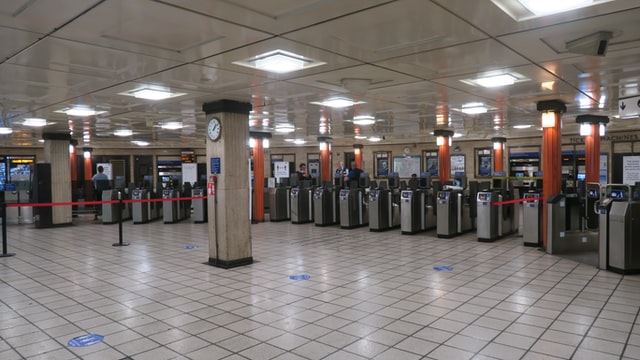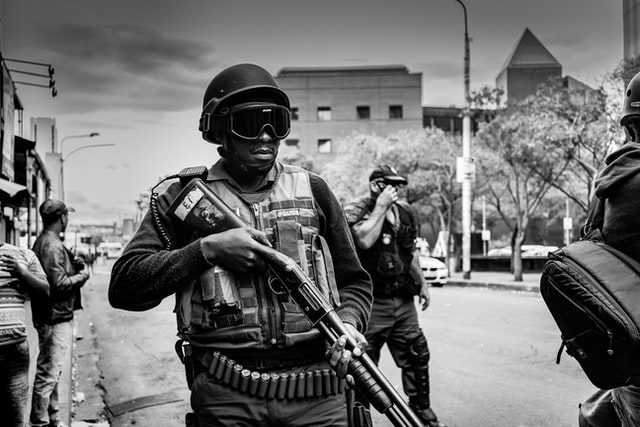Blog
Beyond lockdown: rebuilding the social contract
Continued lockdown measures are straining the social contract between citizens and governments. As this column explains, in contexts where there are low levels of trust in the state as well as high economic inequality – including some countries in sub-Saharan Africa – this could lead to growing unrest and escalating protests. If policies to manage Covid-19 unravel into increased violence between citizens and authorities, the social and economic damage could long outlive the pandemic.
In early 2020, as Covid-19 morphed into a global pandemic, economists and public health officials often found themselves in agreement. If the virus could be crushed, then the short-term economic costs of a strict lockdown would be a small price to pay – not just to save countless lives, but also to enable the economy to return to full steam sooner rather than later.
From today’s perspective, this strategy seems to have been sensible in a number of countries. But the economic and social difficulties imposed by lockdowns, especially for the world’s poorest, have also become clear. With increases in domestic violence and police brutality, as well as lost access to education and other public services, we have seen unease spilling over into civil protests.
Even in exemplary cases such as South Korea and New Zealand, it is evident that the virus cannot be crushed easily or any time soon. While early lockdown restrictions slowed the pace of the spread of the virus, it seems that the reproductive ratio (the R number) cannot easily be squeezed below one.
So as the pandemic continues, the dilemma facing many countries is how to sustain measures that slow the virus and shield the most vulnerable, without imposing excessive long-run social and economic costs.
 But as different policies are taken up to get us through until a vaccine is available, it is important to take stock of the damaging effects of lockdowns, and to acknowledge that no matter how well intentioned, ‘one-size-fits-all’ approaches are not particularly helpful.
But as different policies are taken up to get us through until a vaccine is available, it is important to take stock of the damaging effects of lockdowns, and to acknowledge that no matter how well intentioned, ‘one-size-fits-all’ approaches are not particularly helpful.
While strict lockdowns have worked in some countries, they have been most effective in higher-income contexts where both state capacity and levels of trust are high. Even in these places, tensions are rising, either through direct protests against health measures or the heightening of other ingrained social grievances. We certainly should not expect the same policy to work in all contexts.
Lockdowns in Africa
Our research shows that the challenges of imposing lockdowns are particularly acute in sub-Saharan Africa. Based on a simple index of lockdown readiness, which includes access to clean water, sanitation, electricity, and a regular income, we find that just 7% of all households could be classified as ‘fully ready’ and under one in three are ‘partially ready’.
Moreover, we find that countries with low lockdown readiness also have lower levels of trust, particularly in political institutions. And, as we show, since lower trust also tends to go hand-in-hand with civil unrest, this raises the risk that poorly designed restrictions (of any sort) could quickly descend into protest, weakening the already fragile social contract between the state and its citizens.
Building the social contract
But there is another way. Instead of a vicious cycle of legal restrictions on movement, followed by police brutality that begets more resistance, the need to strengthen trust between state and its citizens must be recognized. Indeed, not only is trust an essential ingredient of effective public health interventions – as the experience of Ebola has demonstrated – but it could also provide a foundation to enact more localized or targeted lockdowns, to the extent that these may become unavoidable.
So how can trust be built in these difficult times? Two general policy measures merit attention. The first is to engage with community leaders and organizations as integral parts of the solution, working with them to find out how the objectives of social distancing and other preventive measures (such as reduced mass gatherings, hand hygiene, and mask usage) can be achieved, as well as how communication with local communities can be effective. This means creating space for local solutions to common challenges.
The second measure is to initiate a massive scaling-up of social protection, ideally towards some form of near universal coverage of families working in the informal sector, who are the hardest hit. There is ample evidence that even small unconditional cash payments can make a vital difference. And with widespread use of mobile phones, even in the poorest communities, low-cost technological solutions to delivering these payments are within reach.
Without action to avoid a cycle of violence and unrest, we could see outbreaks, not just of the virus but also of social conflict, that could persist well beyond the time span of this pandemic. Our best chance to avoid this is to support those most affected by the pandemic – not through heavy-handed police repression and curfew enforcement, but through concerted efforts to rebuild the social contract. Governments need to make a priority of policies that protect the most vulnerable, build trust and soothe tensions, not exacerbate them.
This article is republished from GlobalDev under a Creative Commons license. Read the original article here. Available in English, French, and Spanish.
The views expressed in this piece are those of the author(s), and do not necessarily reflect the views of the Institute or the United Nations University, nor the programme/project donors.
 Join the network
Join the network





